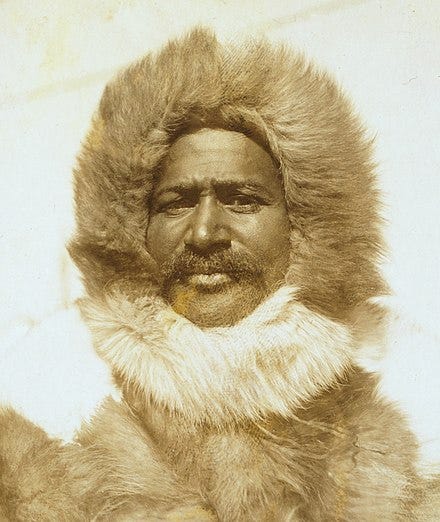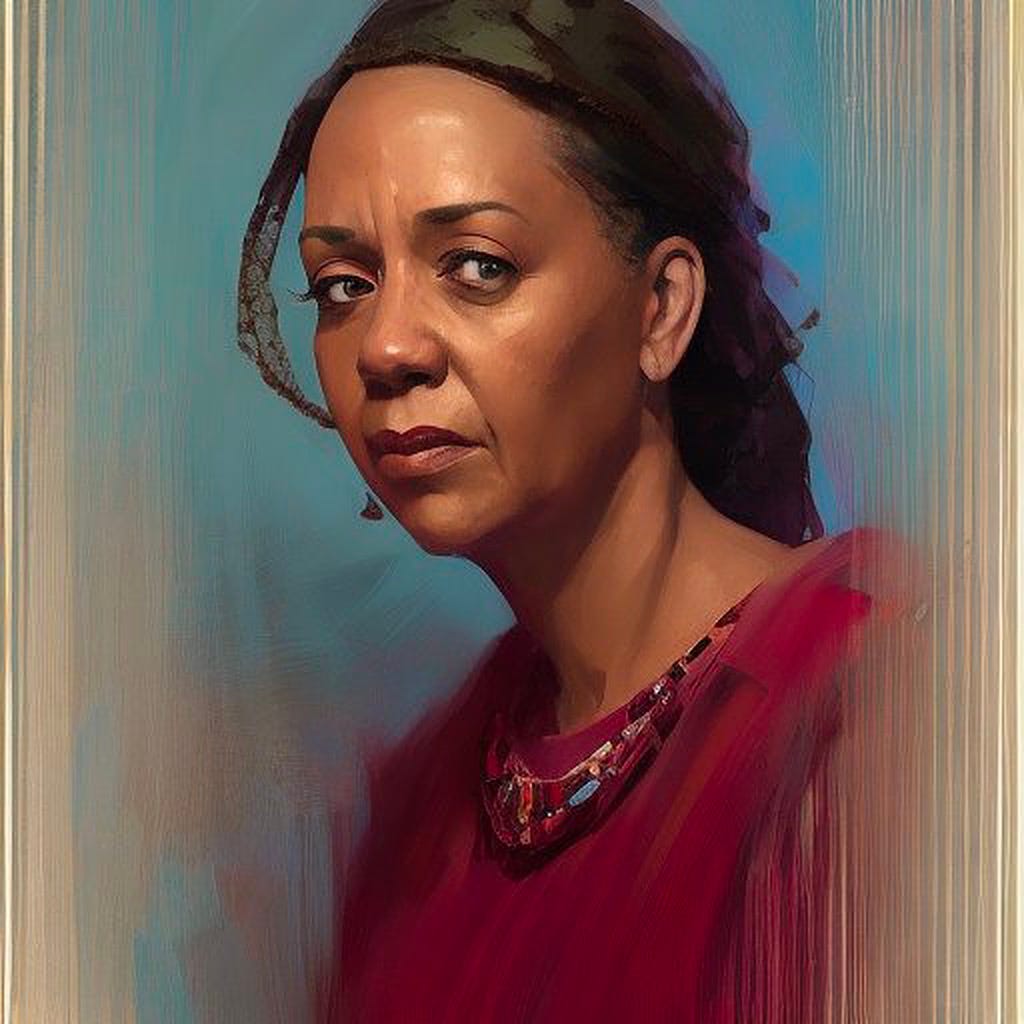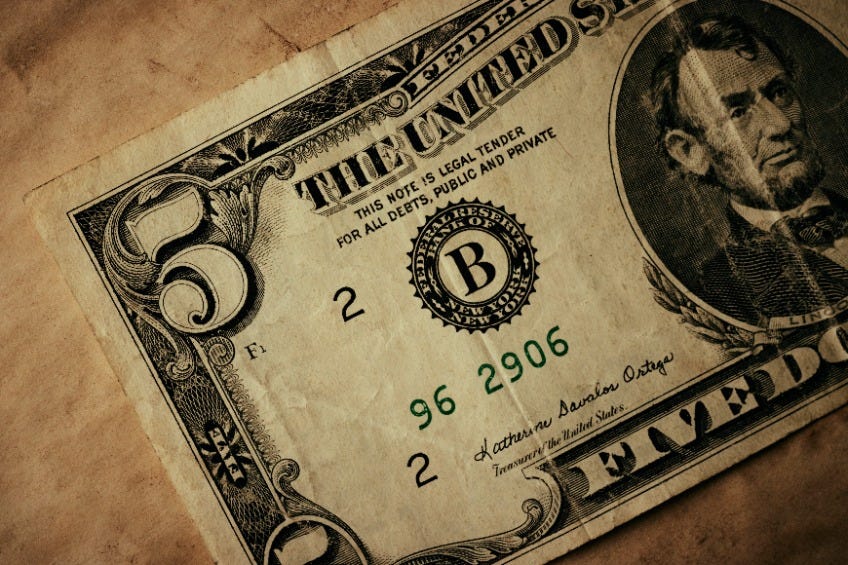Today In Black History: Matthew Alexander Henson
1st Non-Inuit Arctic Explorer to reach the North Pole
Issue #650 Today In Black History, Wednesday, June 26, 2024
Help us to reach our June 2024 goals: +125 total subscribers and +75 paid subscribers:
Please share and subscribe to help us grow this publication.
If you like us, REALLY like us, please click the “Like” button at the end of this post!
Also, please scroll to the end of this post for other ways to financially support us and We Are Speaking with our books and courses.
We appreciate your support!
Today’s Black History WOW!
Matthew Alexander Henson was born to free Black parents on August 8, 1866, in Nanjemoy, Maryland. Starting at an early age, he sought adventure and opportunity through the sea, driven by a thirst for knowledge and discovery. At age 12, he became a cabin boy on the Katie Hines, a merchant ship. Here, under the mentorship of Captain Childs, Henson learned navigation, geography, and resilience.
In 1887, Henson met Robert E. Peary and became his personal valet. Peary, an ambitious Navy engineer with dreams of Arctic exploration, quickly realized Henson’s unique talents and unwavering dedication. Their partnership would span over two decades and multiple expeditions.
The duo embarked on several challenging missions, battling the extreme conditions of the Arctic. Henson's skills as a navigator, dog handler, and craftsman were instrumental in the success of these expeditions. Henson learned the Inuit language and customs, enabling effective communication and fostering cooperative relationships with the indigenous people, crucial for survival and success in the harsh Arctic environment.
Their relentless efforts culminated in the historic 1908-1909 expedition. On April 6, 1909, after an arduous journey fraught with peril, Henson, Peary, and their team reached the North Pole — a feat long considered unattainable. Matthew A. Henson is believed to be the first of the expedition party to reach the North Pole.
Despite Henson's indispensable role, the racial prejudices of the time meant that his contributions were largely overlooked in favor of Peary, who received most of the glory. Over time, recognition grew, and he was honored by numerous organizations, including the Explorers Club, which awarded him its highest honor, the Hubbard Medal, in 1944.
In 1937, Henson published his memoir, A Negro Explorer at the North Pole, providing a firsthand account of his polar adventures and struggles. His narrative detailed the expeditions and highlighted the racial challenges he faced, offering a poignant perspective on his achievements and the racial and societal context of the time.
Matthew Henson's only descendants were his Inuit son and their children. Henson is believed to be a great-great-granduncle of actress Taraji P. Henson.
In 1940, Henson was honored with one of the 33 dioramas at the American Negro Exposition in Chicago.
In 1945, Henson and other Peary aides were given U.S. Navy medals for their Arctic achievements.
In 1948, the Club awarded the explorer its highest rank of Honorary Member, an honor reserved for no more than 20 living members at a time.
In 1954, Henson was invited to the White House.
Before he died in 1955, Henson received honorary doctoral degrees from Howard University and Morgan State University.
Matthew Alexander Henson died in the Bronx, New York on March 9, 1955, at the age of 88. He was buried at Woodlawn Cemetery and survived by his wife Lucy. After she died in 1968, she was buried with him. In 1988, both their bodies were moved for reinterment at Arlington National Cemetery, accompanied by a commemoration ceremony.
Today In Black History
In 1959, the Prince Edward County, Virginia Board of Supervisors abandoned the school system to prevent integration.
In 1960, the African nation of Madagascar gained its independence from France.
In 1960, British Somaliland gained independence from Britain and Italian Somaliland gained independence from Italy. The full country of Somalia was formed.
In 1964, Franklin H. Williams was appointed to the Economic and Social Council by President Lyndon B. Johnson, becoming the first Black U.S. delegate to the United Nations.
In 1990, the then-leader of the African National Congress Nelson Mandela addressed a joint session of the U.S. Congress.
Our paid subscribers are encouraged to discuss this post in our W.A.S. Chat Community.
Join Pamela Hilliard Owens’s subscriber chat
Available in the Substack app and on web
You are also welcome to view “We Are Speaking” in Substack Notes. You can also read other Substack publications without subscribing to them when you join Notes.
This post is free to read for three days. To have access 365/24/7 to our full archive, comment on our posts, and financially support “We Are Speaking” for no more than $5 per month, please subscribe at the paid level.









